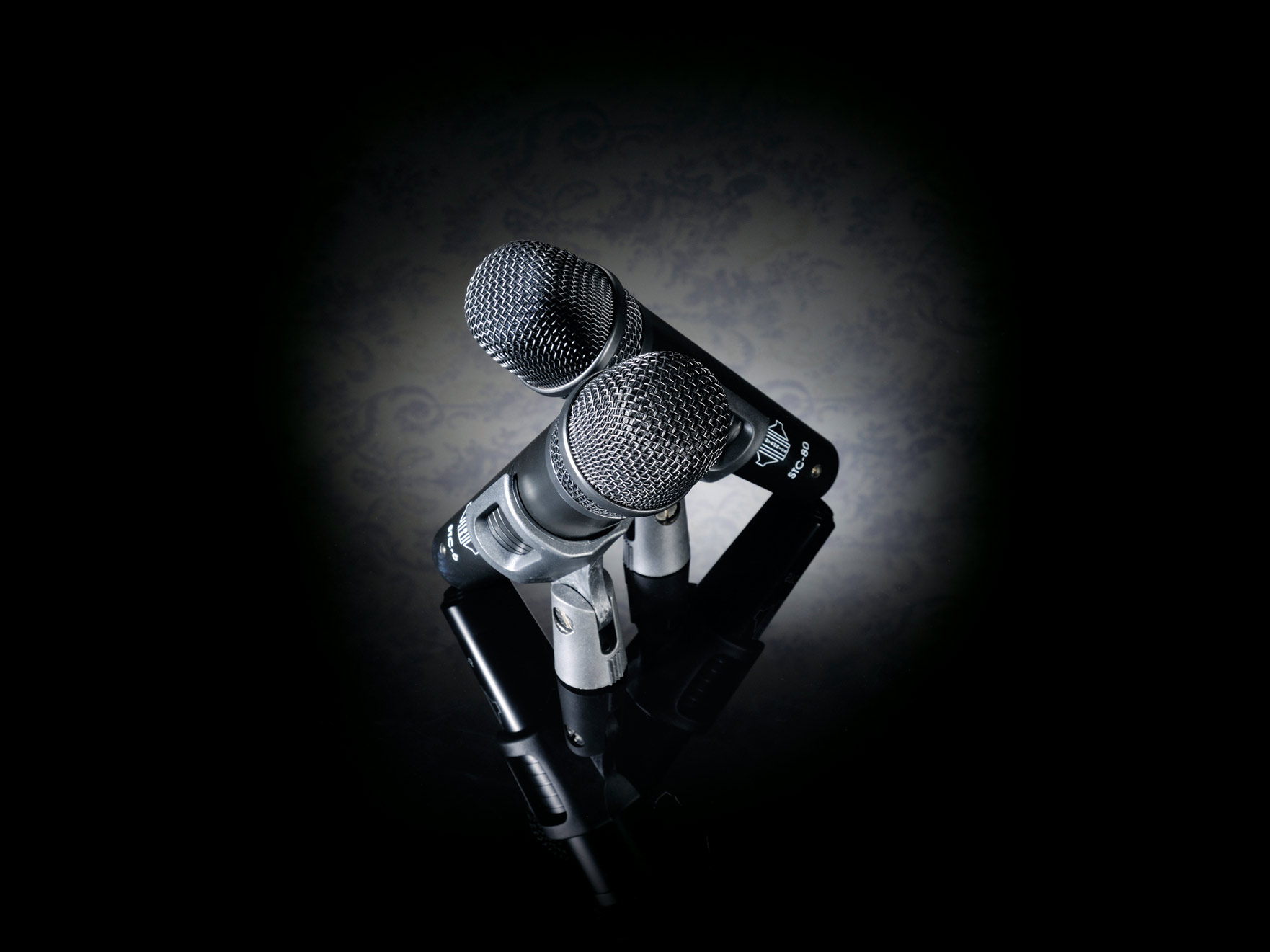MusicRadar Verdict
Affordable microphones for use both on stage and in the home studio. Great for the price.
Pros
- +
Crisp sound. Reasonably-priced. Handling noise kept to a minimum.
Cons
- -
Just two of many good-value mics.
MusicRadar's got your back
What we have here are a couple of affordable handheld vocal mics. One, the STC-6 (£106), is a condenser, while the other, the STC-80 (£70), is a dynamic mic (the first that Sontronics has released).
Both mics come complete with a mic clip and a stylish aluminium carrying case that should provide more than adequate protection. With the same smart black body and grille, side by side they look like almost-but-not-quite identical twins.
The visual differences are the model number stencilled below the Sontronics logo and a small square panel on the other side of the mic. In the case of the STC-6 this is home to pad and hi-pass switches, while one the STC-80, you simply see the word 'dynamic', letting you know that you won't be needing to go near your phantom power switch.
Both mics have cardioid operation and feature internal shock-mounting to help reduce handling noise.
In use
These Sontronics offerings are about 1.5 inches longer than the industry-standard onstage vocal mic, the Shure SM58, and are almost a third heavier. Some singers might find them to be a little too weighty, although they do have an aid to performance in radial grooves around the centre of the body that are designed to maintain grip.
Not all singers want to hold their mic, though, and both models sit comfortably on a stand in the supplied clip.
Want all the hottest music and gear news, reviews, deals, features and more, direct to your inbox? Sign up here.
In terms of vocal sound, in a side-by-side test, the STC-80 dynamic mic sounded a touch brighter than a Shure SM58 and more similar to the more expensive Beta model, with plenty of presence that would help vocals cut through onstage.
The STC-6 is the more sensitive mic, as might be expected. It has a very similar tonal character to the STC-80 but with more in the way of top end clarity. The 75Hz high-pass filter helps with both handling noise and any rumble if mounted on a stand, and full marks to Sontronics for making that and the 10dB pad switch recessed so that they can not be accidentally switched when in use.
Besides the handheld vocal role that both mics are suitable for, both could be put to good use in the studio for a number of applications.
The STC-80 worked brilliantly when capturing the sound of a guitar cab. The STC-6 also worked fine in that role, although with its extended top-end response, it should be suitable for recording instruments that occupy higher frequency ranges than a typical guitar speaker. In fact, we got great results using it on a hi-hat.
Summary
We seem to be spoilt for choice when it comes to dynamic microphones these days -there are plenty of them out there to suit different needs and budgets, which is no bad thing at all.
The STC-80 and STC-6 are just two more contenders among many, but they have the advantage of being suitable for both stage and studio. If you're looking for mics you can use for gigs and studio recording, one of these might be just what you need.
Future Music is the number one magazine for today's producers. Packed with technique and technology we'll help you make great new music. All-access artist interviews, in-depth gear reviews, essential production tutorials and much more. Every marvellous monthly edition features reliable reviews of the latest and greatest hardware and software technology and techniques, unparalleled advice, in-depth interviews, sensational free samples and so much more to improve the experience and outcome of your music-making.

